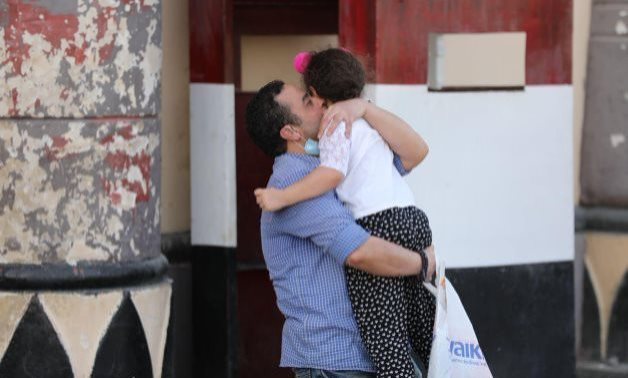
Photo of a prisoner's release per a presidential pardon on May 31, 2022, posted by Parliamentarian Tarek El Khouly on his official Facebook page.
CAIRO – 15 September 2022: The Egyptian authorities released on Thursday another group of 46 pretrial detainees, Presidential Pardon Committee members Tarek El-Awadi and Tarek El-Khouly announced on Thursday.
The detainees, released as per a decision by the Public Prosecution, include renowned lawyer Haitham Mohamedin, said Awadi on Facebook.
Khouly published a list of names of the released detainees, including Mahmoud Abdel Ghani, Saber Marzouk, Ali Borai, Ahmed Ismail, Abdellah Othman, Ahmed Gamil, Ahmed Mosaad, Ashraf Ramadan, Nady Ibrahim, Mohamed Fakhr, Ahmed Ibrahim, Abdel Rahman Said, Abdo Abdel Razek, and Mohamed Abdel Razek.
Other released detainees are Mohamed Assas, Yassin Mahrous, Samy Karam, Radwan Reda, Mostafa Desouki, Mahmoud Said, Mahmoud Hosni, Magdi Abdel Hamid, Mohamed El-Werdani, Mohamed Ibrahim, Abdullah Abdel Khalek, Mahmoud Essam, Tamer Salah, Sayed Abdel Moneim, and Ahmed Mamoun.
The list also includes the names of Eid Ramadan, Ismail Sayed, Ismail Mohamed, Ashraf Hussein, Mohamed Mahmoud, Gamal Kamal El-Din, Mohamed Sabry, Gamal Adnan, Ahmed Abdu, Taha Ali, Mostafa Kamal, Hamada Hassanein, Waleed Rafat, Hussein Shawki, Mohamed Barakat, and Seif Refaie.
Egypt has released hundreds of inmates over the past month since President Sisi called for a national dialogue in April, including pretrial detainees and pardoned inmates.
The Presidential Pardon Committee, formed in 2016 and reactivated by Sisi in April, aims to release young prisoners of conscience and reintegrate them into society.
Khouly previously explained to Egypt Today the criteria that the recently revived committee’s work is based on to prepare pardon lists.
“Our work while preparing the pardon lists and choosing names conform to two criteria; first, they must not be part of a terrorist group and second, they must not have engaged in violence and bloodshed crimes,” Khouly said.
He added that all those who do meet these criteria have the chance of being included in the pardon lists.
Khouly affirmed that the committee receives pardon requests via many avenues, including through the National Council for Human Rights (NCHR) and the human rights committees of the House of Representatives and Senate.
In addition, the committee receives pardon requests through the National Youth Conference website, Khouly added.
Comments
Leave a Comment